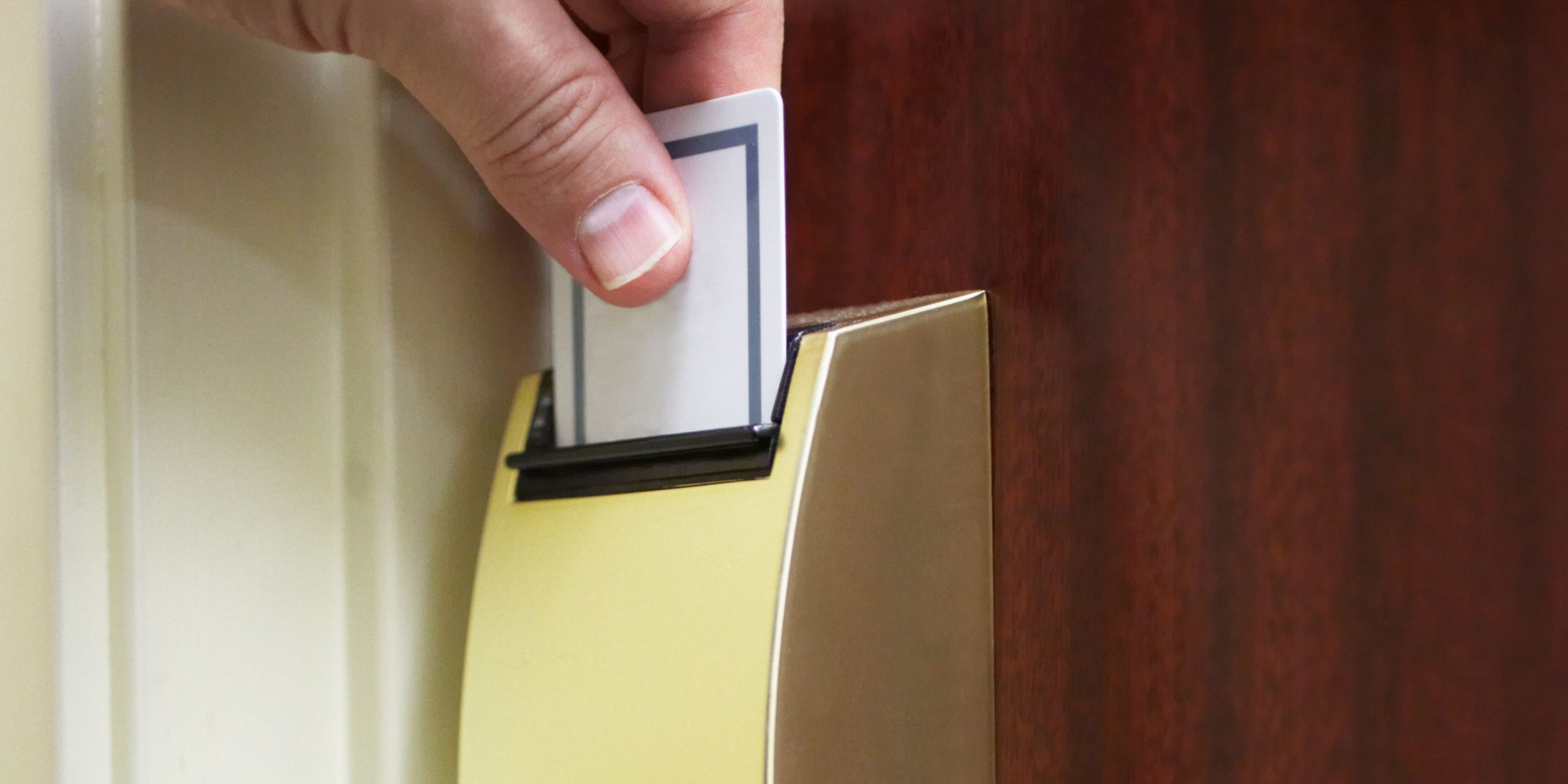Securing hotels, motels, and resorts poses unique challenges due to the constant influx of guests and the need to maintain a safe environment 24/7. One of the crucial aspects of ensuring guest safety is implementing a reliable and efficient hotel door lock system. In this guide, we’ll explore different types of hotel door lock systems and provide insights to help business owners choose the right one for their establishments.
Understanding Hotel Door Lock Systems
Hotel door lock systems are customized setups comprising locks, keys, and user credentials used to secure private and communal hotel spaces. Traditionally, mechanical door locks and physical keys were common, but electronic locks are becoming popular for enhanced convenience and security.
Types of Hotel Door Locks
- Hotel Key Locks:
-
- Pros: Inexpensive, easy to install and use.
- Cons: Keys can be lost or copied, difficult to track.
- RFID Hotel Door Lock System:
-
- Pros: Contactless access, credentials can be tracked.
- Cons: Doors remain locked during power outages, replacement cards can be costly.
- Magnetic Key Card Systems:
-
- Pros: Convenient, audit trails can be created.
- Cons: Cards can be demagnetized, susceptible to copying.
- Hotel Smart Lock Keypads:
-
- Pros: Credentials can be managed remotely, access events can be monitored.
- Cons: Difficult to track PIN codes in large deployments, vulnerable to hacking.
- Smart Hotel Door Locks:
-
- Pros: Contactless access, convenient mobile check-ins.
- Cons: Requires a smartphone, may confuse older guests.
Importance of Secure Hotel Door Lock Systems
- Guest Security: Hotel locks must secure guest rooms and private areas while ensuring staff can swiftly account for all guests during emergencies.
- Credential Management: Credentials should be secure, uncopyable, and easily revocable to prevent theft and maintain guest security.
Use Cases and Guidelines
- Lodgings and Guest Rooms:
-
- Doors must reliably lock, and keyless systems should have backup power.
- Access should automatically revoke upon checkout.
- Entrances and Exits:
-
- Exterior doors should unlatch in a single motion for swift evacuations.
- Consider combining entrance, exit, and room access credentials for convenience.
- Leisure Resort Facilities:
-
- Implement self-latching locks and panic devices for safety.
- Use hotel door lock systems to control access to amenities and facilities.
- Stairwell Access:
-
- Stairwell doors must automatically unlock during emergencies to provide escape routes.
- Service and Maintenance Areas:
-
- Locks should restrict access to authorized staff only, preventing guest injuries.
Key Takeaways
- Credential Management: Choose a system that allows easy monitoring and revocation of credentials.
- System Selection: Consider the size of the establishment, budget constraints, and integration needs when selecting a hotel door lock system.
- Consultation: Collaborate with security experts and suppliers to design a customized, secure solution aligning with specific needs.
Implementing the right hotel door lock system is paramount for guest safety and operational efficiency. By understanding the options and adhering to guidelines, hospitality businesses can create a secure environment for their guests while ensuring smooth day-to-day operations.

